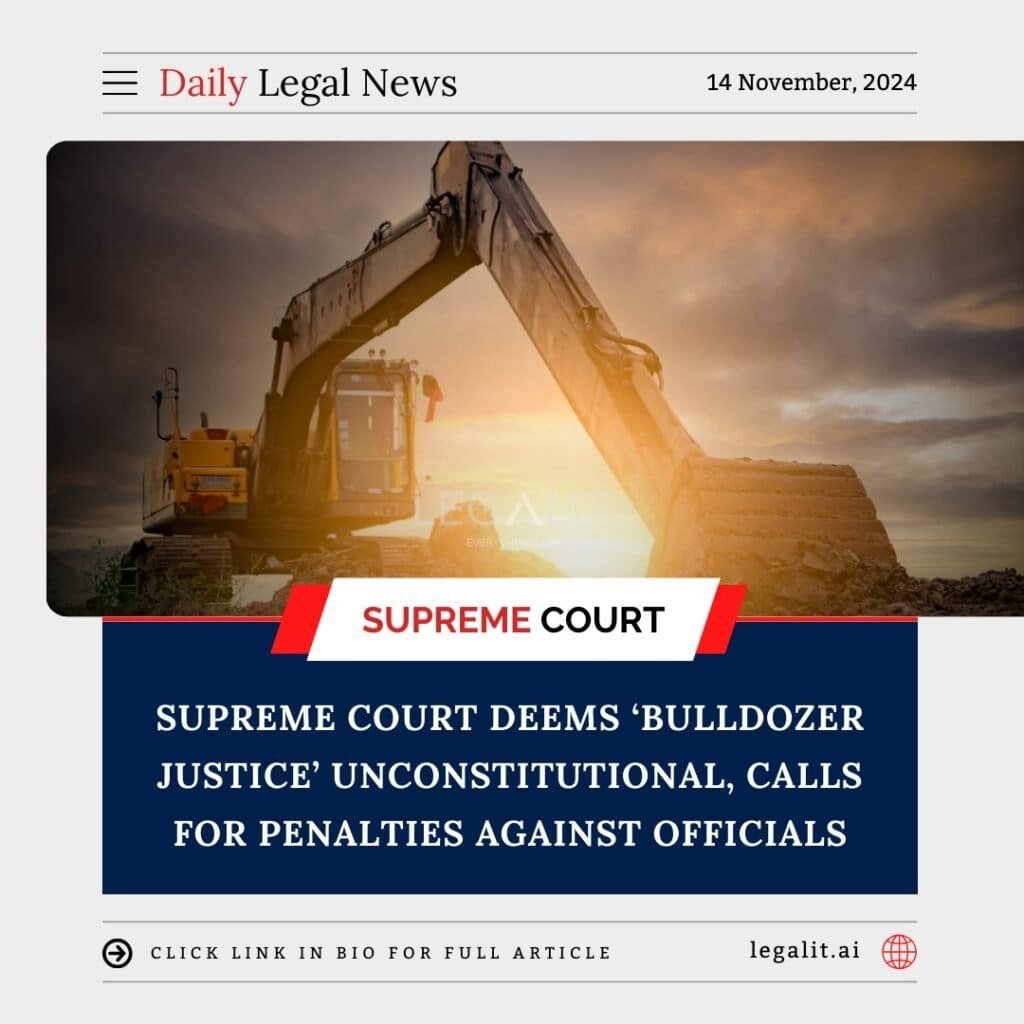
In a significant ruling, the Supreme Court of India declared the practice of “bulldozer justice” as unconstitutional, emphasizing the need for state officials to face penalties when engaging in actions that violate citizens’ rights without due legal process. This ruling sends a clear message on the limits of administrative powers and underscores the court’s commitment to protecting fundamental rights.
Background:
The term “bulldozer justice” refers to demolitions carried out by authorities on properties of individuals accused or suspected of criminal conduct, often without sufficient legal grounds or prior judicial approval. This practice has raised serious concerns over arbitrary use of power, with critics arguing that such actions sidestep due process, amounting to extrajudicial punishments.
Court’s Rationale:
In its ruling, the Supreme Court stressed that the rule of law is foundational to a democracy and that all punitive measures by state authorities must align with constitutional safeguards. The court held that bulldozer justice, as an extralegal action, violates principles of natural justice and due process. This practice, the court emphasized, not only undermines individual rights but also erodes public confidence in legal systems meant to ensure fairness and accountability.
Supreme Court’s Directions:
The court outlined specific guidelines for preventing misuse of power by state authorities:
- Strict Adherence to Legal Procedures: Officials must follow established legal procedures before carrying out any demolition actions. Unilateral decisions without proper investigation or judicial approval are unconstitutional.
- Accountability Measures: The court mandated that officials who engage in unauthorized demolitions or other forms of bulldozer justice should face strict disciplinary actions, including potential penalties.
- Oversight by Judiciary: Before any demolition related to criminal allegations, authorities must secure judicial oversight, ensuring that such actions are necessary, proportionate, and legally justified.
- Right to Legal Recourse: Affected parties must be provided adequate time and notice to respond to demolition orders, along with access to judicial recourse to challenge such actions.
Existing Measures:
The Supreme Court pointed out that while there are existing legal frameworks governing demolitions, these must be applied uniformly and responsibly. The recent directive reiterates the need for compliance with legal standards and avoids arbitrary actions by officials under the guise of law enforcement.
Conclusion:
This ruling by the Supreme Court reiterates that bulldozer justice, without due legal process, is unconstitutional and demands that officials acting beyond their authority should face penalties. The judgment reinforces the importance of accountability and due process, making clear that a civilized society cannot tolerate unlawful punitive actions. The decision reflects the Supreme Court’s resolve to protect citizens’ rights and uphold constitutional values against arbitrary administrative power.